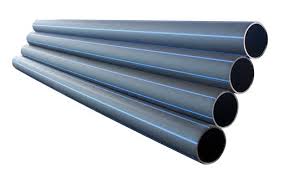Aug . 18, 2024 14:07 Back to list
High-Density Polyethylene Pipes for Efficient Agricultural Irrigation Systems and Solutions
The Importance of HDPE Pipes for Irrigation
Irrigation is a critical component of modern agriculture, ensuring that crops receive the necessary water for optimal growth. Among the various materials used for irrigation systems, High-Density Polyethylene (HDPE) pipes have emerged as a preferred choice for farmers and agricultural engineers alike. This article explores the benefits and applications of HDPE pipes in irrigation, highlighting their significance in enhancing agricultural productivity.
What is HDPE?
High-Density Polyethylene is a thermoplastic polymer known for its high strength-to-density ratio. It is manufactured through the polymerization of ethylene, resulting in a durable and flexible material that can withstand harsh environmental conditions. HDPE pipes are lightweight, corrosion-resistant, and have a smooth inner surface that reduces friction, making them ideal for transporting water over long distances.
Advantages of HDPE Pipes in Irrigation
1. Durability and Longevity One of the most significant benefits of HDPE pipes is their exceptional durability. They are resistant to various chemicals and environmental stressors, such as UV radiation and extreme temperatures. This resilience leads to a longer lifespan, often exceeding 50 years, ensuring that irrigation systems remain operational and cost-effective over time.
2. Flexibility and Ease of Installation HDPE pipes are highly flexible, allowing them to bend around obstacles without the need for joint fittings. This characteristic facilitates easier installation, particularly in uneven or rugged terrains. Fewer joints also reduce the risk of leaks, which is crucial for maintaining water efficiency in irrigation systems.
hdpe pipe for irrigation product

3. Cost-Effectiveness Although the initial costs of HDPE pipes may be slightly higher than traditional materials, their long-term savings are substantial. Their durability translates to lower maintenance costs and reduced frequency of replacement. Additionally, the efficiency of water transport minimizes wastage, leading to savings on water bills and better crop yields.
4. Environmental Sustainability HDPE is recyclable, contributing to sustainable agricultural practices. By utilizing HDPE pipes, farmers can reduce their carbon footprint and promote a more eco-friendly approach to farming. Moreover, the efficient delivery of water minimizes the over-extraction of water resources, promoting sustainable water usage.
5. Resistance to Biological Growth Unlike metal pipes, HDPE pipes do not corrode or promote algae growth, which can clog irrigation systems. This feature ensures a steady flow of water to crops, thus enhancing irrigation efficiency. Furthermore, the smooth interior of HDPE pipes helps maintain consistent water pressure, essential for effective irrigation.
Applications in Irrigation
HDPE pipes are versatile and can be used in various irrigation systems, including drip irrigation, sprinkler systems, and sub-surface irrigation. They are suitable for both surface and underground applications, making them adaptable to various agricultural practices. Furthermore, their ability to handle different water pressures makes them suitable for small-scale farms as well as large agricultural enterprises.
Conclusion
In conclusion, HDPE pipes are revolutionizing irrigation practices in agriculture, offering a multitude of benefits that enhance efficiency, sustainability, and productivity. As the demand for food continues to rise globally, the adoption of advanced irrigation solutions like HDPE pipes will be critical in optimizing water usage and enhancing crop yields. With their durability, flexibility, and eco-friendly properties, HDPE pipes stand as a testament to the future of sustainable agriculture, ensuring that farmers can meet the challenges of a changing climate and growing population. Adopting HDPE pipes for irrigation is not just a step towards modernizing agricultural practices; it is an investment in a more sustainable and productive future.
-
High-Quality PVC Borehole Pipes Durable & Versatile Pipe Solutions
NewsJul.08,2025
-
High-Quality PVC Perforated Pipes for Efficient Drainage Leading Manufacturers & Factories
NewsJul.08,2025
-
High-Quality PVC Borehole Pipes Durable Pipe Solutions by Leading Manufacturer
NewsJul.08,2025
-
High-Quality PVC Borehole Pipes Reliable PVC Pipe Manufacturer Solutions
NewsJul.07,2025
-
High-Quality UPVC Drain Pipes Durable HDPE & Drain Pipe Solutions
NewsJul.07,2025
-
High-Quality Conduit Pipes & HDPE Conduit Fittings Manufacturer Reliable Factory Supply
NewsJul.06,2025

